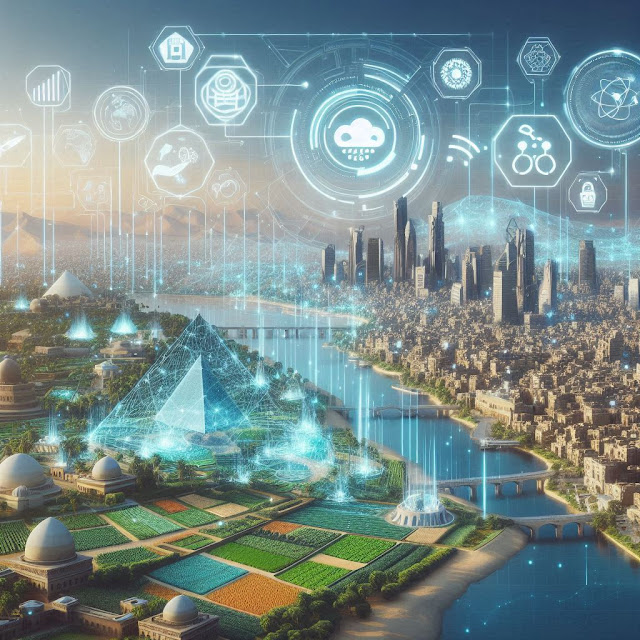Introduction
As technology continues to reshape the world, Artificial Intelligence (AI) is emerging as a driving force behind economic growth, governance, and social transformation. Egypt, with its rich history and rapidly expanding technological infrastructure, has the potential to harness AI to revolutionize various sectors. From smart cities to healthcare advancements, AI could play a pivotal role in shaping the nation's future.
AI in Economic Growth
AI can enhance Egypt’s economy by optimizing industries, increasing efficiency, and fostering innovation. Key areas of impact include:
Manufacturing & Automation – AI-powered robotics and smart factories could boost production, reduce costs, and improve exports.
Finance & Investment – AI could streamline banking processes, detect fraud, and provide predictive insights for economic planning.
AI in Government and Smart Cities
The implementation of AI in governance could enhance public services, reduce bureaucracy, and improve decision-making. Future developments may include:
AI-Powered Public Services – Streamlining government processes such as tax collection, document verification, and traffic management.
Smart Cities & Infrastructure – AI-driven urban planning could improve transportation systems, energy efficiency, and waste management.
Predictive Security – AI-powered surveillance and threat detection could enhance national security and reduce crime rates.
Healthcare Advancements
AI can revolutionize Egypt’s healthcare sector, providing better accessibility and efficiency in treatment:
AI-Assisted Diagnostics – Machine learning models could detect diseases earlier, improving survival rates.
Telemedicine & Virtual Health – AI-powered healthcare platforms could provide remote consultations for citizens in remote areas.
Smart Hospitals – AI-driven patient monitoring systems could optimize hospital efficiency, reducing wait times and improving resource allocation.
Challenges and Ethical Considerations
Despite AI’s potential, Egypt must address challenges to ensure responsible AI development:
Digital Infrastructure – Expanding access to high-speed internet and AI-capable hardware across the nation.
Employment Shifts – Preparing workers for AI-related transformations by fostering skill development and education programs.
Ethical AI Use – Developing regulations to prevent bias, ensure transparency, and protect personal data privacy.
Conclusion
AI holds the promise of transforming Egypt’s economy, governance, and healthcare, creating a more efficient and interconnected society. While challenges remain, the nation’s ability to embrace AI responsibly could lead to a future of innovation and global competitiveness.



